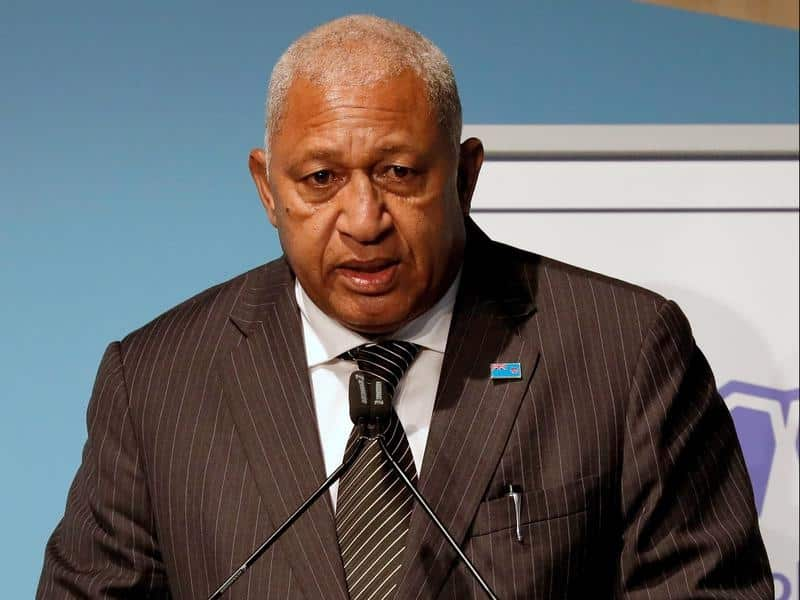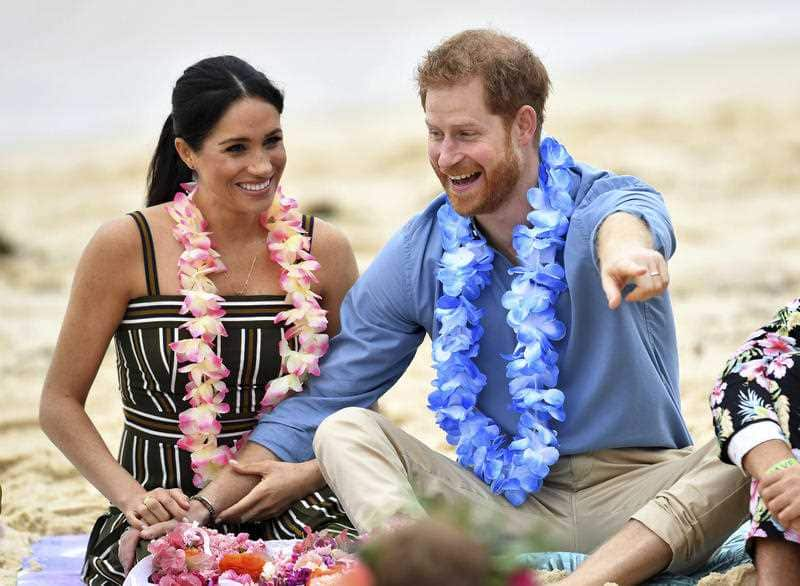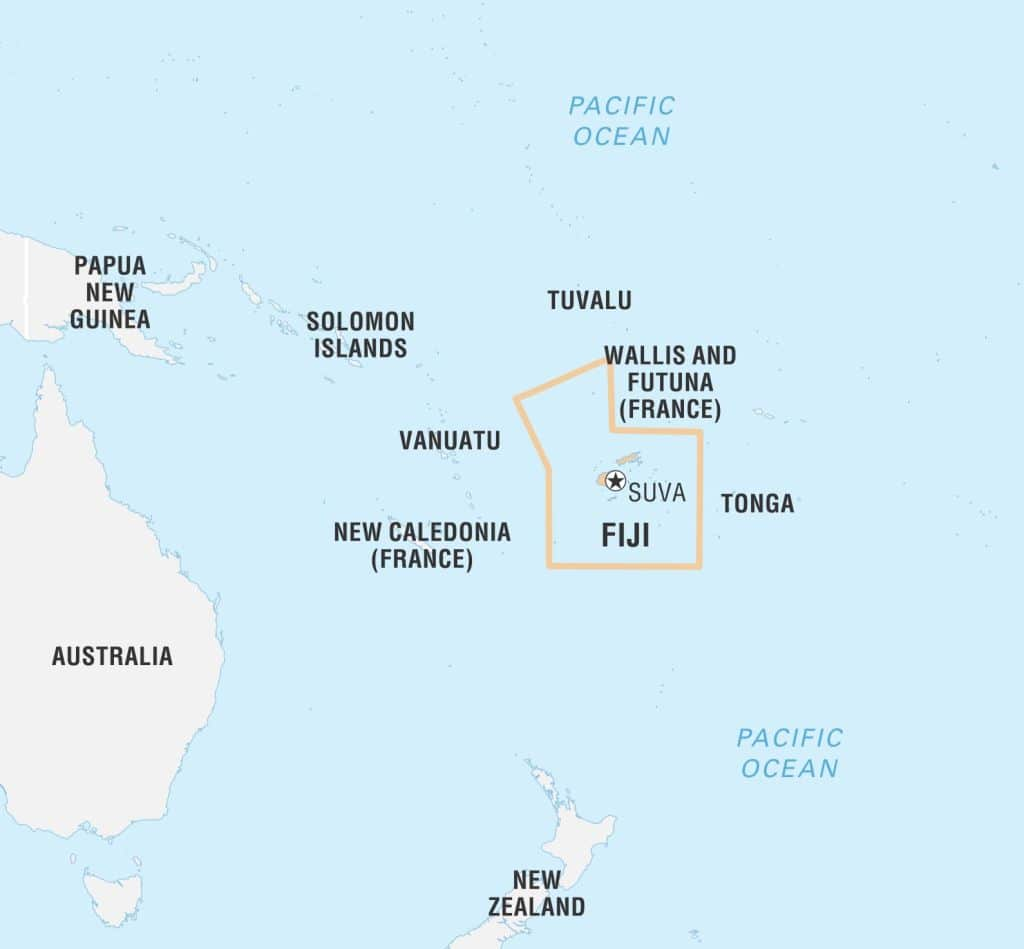The Pacific island nation of Fiji, with a population of 900,000, is set to hold only its second general election since a 2006 coup. But the long-time dominance of Prime Minister Frank Bainimarama and the country’s repressive media environment have some political analysts raising doubts over the election.
What are Bainimarama's chances?
Mr Bainimarama has enjoyed his run at the top, announcing in late September that Fiji’s election would be held on 14 November 2018, almost the last possible date for it under the constitution.
Six parties are fielding candidates but observers are expecting Mr Bainimarama and his ruling Fiji First Party to win again.
“I can’t think of any scenario in which the government will lose this election,” a former Australian diplomat in Fiji told SBS News, speaking anonymously because of Mr Bainimarama’s practice of deporting or banning foreign critics from Fiji. “Any other outcome would be unacceptable to Bainimarama. And the opposition has done themselves no favours.”
“Any other outcome would be unacceptable to Bainimarama. And the opposition has done themselves no favours.”

Fiji PM Frank Bainimarama. Source: AAP
But that doesn’t mean there’s nothing to see here.
Professor Vijay Naidu from the University of the South Pacific in Suva said Mr Bainimarama’s apparent popularity with voters in the polls should be looked at in context. His government retains tight control of the media – almost no criticism of the government is published or broadcast in Fiji – and the opposition parties say there is rampant pork barrelling or vote buying in the guise of government grants.
The election will also come just 20 days after the Duke and Duchess of Sussex visit the island, following their tour of Australia. And while Prince Harry and Meghan’s overseas program is said to be “non-political”, former top Fijian diplomat Robin Nair told the ABC “the perception is, of course, that the government will take full advantage” of being seen with the pair.

Prince Harry and Meghan, seen on Sydney's Bondi Beach, will visit Fiji on their international tour. Source: AAP
Democracy in Fiji
Professor Jon Fraenkel, an expert on the politics of Pacific Island nations from Victoria University in New Zealand, said Mr Bainimarama’s government has since achieved some popular support and positive reforms following the military coup.
“I think they’re going to win this election,” he told SBS News, “because the opposition is very divided, pretty incoherent, hasn’t been able to mount a major challenge, the economy’s doing ok, and Bainimarama has some sort of vision for the country.”
But his party, which holds an absolute majority in the Fiji parliament, has made little secret of their leader’s contempt for democratic norms.  "There’s a reluctance on the part of the government to have elections,” says Professor Fraenkel. “He wants there to be an election but he doesn’t want there to be an opposition. He finds the opposition very annoying because they keep asking questions. He says it quite openly.”
"There’s a reluctance on the part of the government to have elections,” says Professor Fraenkel. “He wants there to be an election but he doesn’t want there to be an opposition. He finds the opposition very annoying because they keep asking questions. He says it quite openly.”

World Data Locator Map, Fiji Source: Getty Images
He wants there to be an election but he doesn’t want there to be an opposition. He finds the opposition very annoying because they keep asking questions. - Professor Jon Fraenkel
There have been four military coups in Fiji since independence: two in 1987, one in 2000 and one in 2006. The current constitution was imposed by the Bainimarama government in 2013 with little public consultation and Professor Fraenkel says it is unpopular with many indigenous Fijians.
The US-based democracy NGO Freedom House says “the repressive climate that followed a 2006 coup has eased since democratic elections were held in 2014”, but notes “the ruling party frequently interferes with opposition activities, the judiciary is subject to political influence, and military and police brutality is a significant problem.”
Key issues: from sugar trade to China
Fiji’s economy – based on tourism and the sugar industry – has grown at around three per cent a year in recent times. Mr Bainimarama’s government has pushed action on climate change on the world stage, and at home has invested heavily in infrastructure and implemented some reforms, such as lowering the voting age and liberalising some of the most repressive measures of the coup years.
The country was re-admitted to the Commonwealth in 2014 after its earlier expulsion for the coup.
The relative political stability has seen foreign investment return to the country, and while Fiji’s media freedom is considered the worst of the Pacific nations by Reporters Without Borders, Australia and New Zealand have been keen to re-establish normal relations since 2012.
China’s growing influence in the region has also effectively strengthened Mr Bainimarama’s hand. China – supportive from the outset of his regime – has invested heavily and built much-needed infrastructure in Fiji; as well as arguably making the Australian and New Zealand governments less likely to point out flaws in the nation’s democratic processes for fear of driving Fiji further into Beijing’s embrace.
Who else is standing?
“One of the colourful features of this election is that it pits two coup leaders against each other," Professor Fraenkel said. That's Mr Bainimarama, who led the 2006 coup and has effectively run the country since; and opposition leader Sitiveni Rabuka, who led two coups in 1987, later becoming prime minister in the 1992 election.
Some 234 candidates (56 of them women) from six parties are fielding candidates for all 51 parliamentary seats. Fiji First, the Social Democratic Liberal Party (known as SODELPA) and the National Federation Party are all fielding a full line up, while three smaller parties have candidates for about half the seats.
Will the vote be free and fair?
Probably, says Professor Fraenkel. “The elections coming up are, in my view, genuine and I don’t think the last elections were rigged.”
But, he says, there are issues of concern. Opposition candidates have been harassed with what they say are politically motivated corruption charges and vexatious lawsuits. There are also discrepancies on the electoral roll, which shows some 50,000 (almost 10 per cent) more voters than the latest census data does, raising the possibility of data collection errors, electoral irregularities or even vote fraud. The discrepancy needs to be explained and fixed prior to the election, Professor Fraenkel says.
Professor Naidu says the governing Fiji First is the only political party to express confidence in the independence of the Electoral Commission or in the Supervisor of Elections, who was appointed by Mr Bainimarama’s right hand man, the ANU and UNSW-educated Aiyaz Sayed-Khaiyum who holds several ministries in Mr Bainimarama’s cabinet.
“The Electoral Commission is compromised so you can see why the opposition are up in arms about what’s going on,” Professor Naidu said.
The election will be a test of Fiji’s recent tentative liberalisations.
"Ahead of the 2014 election you got a very nervous time, a repressive environment where Bainimarama warned of instability if the opposition won,” Professor Fraenkel said.
“I think you're going to get something like that again, a message going out to voters probably worth a few per cent in ballot terms, that if you vote for the opposition you’re going to get a period of instability, as well as messages of uncertainty about what the military might do.
“That’s quite potent in Fiji, it certainly encourages those who want a quiet life to vote for the government."










